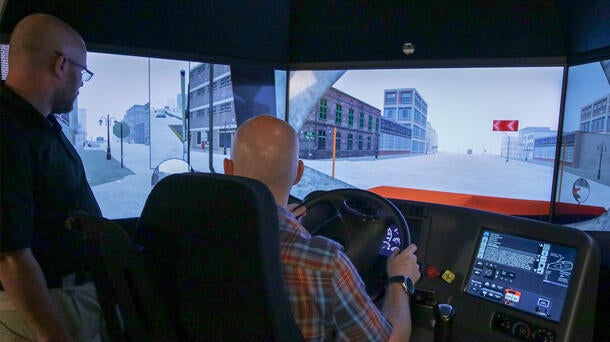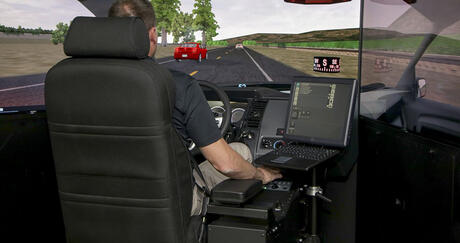With the development of accurate and realistic driving simulators, it’s becoming possible to produce more accurate research into driving behavior. Here are five ways driving simulators are revolutionizing research into driver behavior.
1. Efficiency
Driving simulators provide an efficient research environment. Gathering field data can be complicated and complex. It takes significant time to gather, organize, and interpret data—but simulators make it possible to schedule research sessions with multiple drivers in multiple locations to get broad and diverse data.
2. Safety
With over 35,000 fatal motor vehicle crashes leading to over 38,000 deaths annually, driving isn’t safe. What’s even more complicated is when you are looking to research risky driving behaviors like distracted driving or drunk driving.
Driving simulators are a safe way to perform research. They make it possible for researchers to gain insights into potentially risky and fatal situations, like finding the correlation between driving-related skills and alcohol use, and the effects of low doses of alcohol, in a safe and controlled environment.
With driving simulators, researchers can safely research distracted, drunk, or impaired drivers without risk to people or property.
3. Standardization
Field research data must consider road conditions, the time of day, weather, the vehicle's maintenance level and make and model, and where the test takes place. Driving simulators control these variables, allowing researchers to generate a standardized test environment for all participants.
Controlling variables helps improve the validity of the research and helps provide a correlational or causal relationship from the data gathered.
4. Data Collection
Driving simulators can track and record everything that happens during a research session. With every detail being recorded, it’s possible for researchers to accurately determine minute aspects of driving behaviors, like reaction time.
Data collection in driving simulators is comprehensive, enabling researchers to replay, slow down, and look at the intricacies in each driving sample, as well as predict on-road behavior and analyze models and scenarios.
5. Physical Fidelity
A major part of driving a vehicle is the physical feedback and experience that comes from driving a car. That’s why a driving simulator doesn’t just have to duplicate what a driver can see, but has to be able to recreate the physical experience to get accurate insights into driving behavior.
By maintaining this physical fidelity and creating an immersive experience that uses realistic external hardware like a steering wheel and pedals that provide realistic feedback, researchers can gain more accurate data that reflects natural driving habits.
Issues with Limited Behavioral Fidelity
The main weakness of using driving simulators for research is the lack of behavioral fidelity. Driving simulators provide high security and safety, but that security can alter how participants view their driving because there are no longer any risks or meaningful consequences for erratic driving. Due to the safety of the simulation, participants can easily break laws, drive recklessly, and act more brazenly than in real life.
Learn More About L3Harris’ Driver Simulators
L3Harris’ driver simulators are not just a driver training product but can also be used in researching driving behavior. L3 Harris provides multiple driver simulators that provide realistic simulation for different types of drivers. The PatrolSim provides driving training for patrol officers, while the TranSim focuses on a simulation tailored for commercial drivers.
Each simulator provides an accurate, realistic simulation that maintains physical fidelity. This helps researchers obtain a more accurate understanding of drivers’ skills and situational awareness while providing an efficient, secure, and reliable driving research solution.
Contact us to learn more about L3Harris’ driving simulators and see how they’ve helped in other industries.







